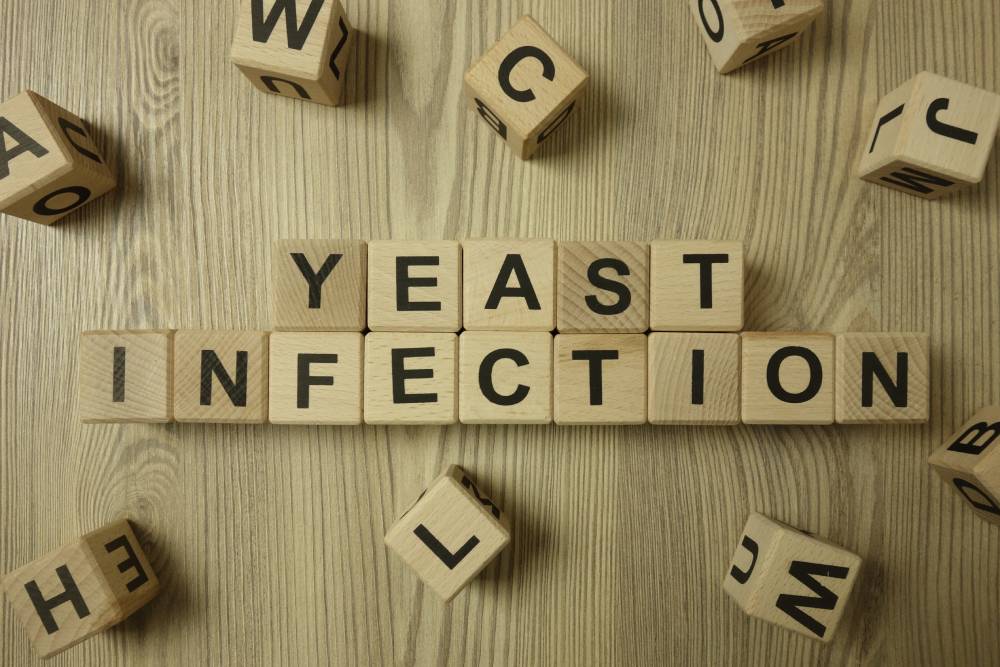Modern Medicine, located in Forney and Dallas, TX, offers expert treatment for candidiasis, a common fungal infection that can cause discomfort and disrupt daily life.
Our compassionate team is led by Dr. Cory Rice, who has been featured in prestigious publications like Scientific Observer. We provide effective, tailored services to address all of your concerns, including those related to candida overgrowth.

With advanced diagnostic tools and personalized treatment plans, we strive to restore your health and well-being so you can feel your best. Discover the comprehensive care you need to manage candidiasis with confidence.
Candidiasis Treatment: The Yeast Syndrome
There are trillions of bacteria living in our digestive tract, making up the normal microflora. These bacteria generally play a supportive role in the health of the colon by helping to synthesize vitamins, degrade toxins, and produce natural antibiotics. Candida, a yeast-like fungus, also normally inhabits the gut in small amounts. However, if these yeast organisms are allowed to grow unchecked, the harmonious balance between yeast and bacteria is upset, resulting in Intestinal Candidiasis or what has been called the Yeast Syndrome. Not only can this overgrowth cause problems such as vaginal yeast infections and oral thrush, but candida can also release byproducts, which are then absorbed into the bloodstream and may travel to many areas of the body. A variety of symptoms may then occur as the immune system attempts to deal with these foreign molecules. As a result, Intestinal Candidiasis can be an underlying cause of chronic, difficult to diagnose health problems. This is also something that is highly overlooked in most medical practices!
Candidiasis Treatment: A number of factors increase the risk of overgrowth:

- repeated use of antibiotics
- chronic stress
- diet high in simple sugars
- alcohol
- oral contraceptive use
- diabetes
- hypothyroidism
- a weakened immune system
Candidiasis Treatment: Symptoms associated with candida overgrowth:
- General: chronic fatigue or malaise, sweet cravings
- Gastrointestinal system: thrush, bloating, gas, intestinal cramps, rectal itching, alternating diarrhea and constipation
- Genitourinary system: vaginal yeast infections, frequent bladder infections
- Hormonal system: menstrual irregularities, decreased libido
- Nervous system: depression, irritability, trouble concentrating
- Immune system: allergies, chemical sensitivities, lowered resistance to infections
If this sounds like you, we can help! Our practice has developed a protocol designed specifically to starve and kill candida, leaving you feeling like a brand new person inside and out. Schedule time with one of our Modern Medicine providers today to see if our candidiasis protocol is right for you!
FAQs
How Is Intestinal Candidiasis Diagnosed?
Diagnosing intestinal candidiasis generally involves a combination of the following:
- A detailed medical history
- Physical examination
- Specific tests
Your provider may ask about symptoms such as bloating, gas, diarrhea, or fatigue. In some cases, they may conduct stool tests or a comprehensive digestive analysis to detect Candida overgrowth.
Additionally, a practitioner may use blood tests to check for elevated antibodies to Candida. This can signify an overgrowth.
Endoscopic examinations may also be necessary in more complex cases. They can help to rule out other gastrointestinal issues.
What Treatment Options Are Available for Intestinal Candidiasis?
Once diagnosed, treatment for intestinal candidiasis at Modern Medicine may involve the following:
- Antifungal medications to reduce Candida overgrowth.
- Probiotics to restore gut flora balance and promote healthy bacteria that naturally combat Candida.
- Antifungal herbs or supplements to complement other treatments.
The goal of treatment is to get rid of excess Candida while improving gut health and supporting the immune system.
Are There Any Dietary Changes Recommended for Treating Intestinal Candidiasis?
Dietary changes are a key part of managing and treating intestinal candidiasis.
The Modern Medicine team often advises patients to follow an anti-Candida diet. This includes eliminating sugar, refined carbohydrates, and yeast-containing foods. These foods can promote Candida overgrowth.
Instead, we recommend increasing the intake of:
- Vegetables
- Lean proteins
- Healthy fats
- Non-starchy foods
- Fermented foods, such as yogurt and sauerkraut
Following these dietary guidelines can enhance the effectiveness of other treatments. They can also support better overall gut health.
How Long Does Treatment for Intestinal Candidiasis Take?
The duration of treatment for intestinal candidiasis varies. It depends on the severity of the overgrowth and individual health factors.
Many patients at Modern Medicine begin to notice improvements within two to four weeks of starting treatment. However, full recovery may take several months. This is especially true when combined with dietary changes and ongoing probiotic supplementation.
It is important to follow the treatment plan as directed to eradicate Candida.
Can Intestinal Candidiasis Cause Long-Term Health Problems if Left Untreated?
If left untreated, intestinal candidiasis can lead to more serious health problems. Chronic Candida overgrowth can:
- Weaken the immune system
- Contribute to leaky gut syndrome (intestinal permeability)
- Exacerbate food sensitivities
- Lead to persistent digestive issues
At Modern Medicine, we emphasize early diagnosis and comprehensive treatment. This approach helps to prevent long-term complications.
Schedule a Consultation in Forney or Dallas, TX
Are you struggling with symptoms related to intestinal candidiasis? Our practice has developed a protocol designed to starve and kill Candida. It will leave you feeling like a brand new person inside and out.
Schedule time with one of our Modern Medicine providers today to see if our candidiasis protocol is right for you! Call our Dallas office at 469-620-2054 or our Forney office at 972-552-2920.


